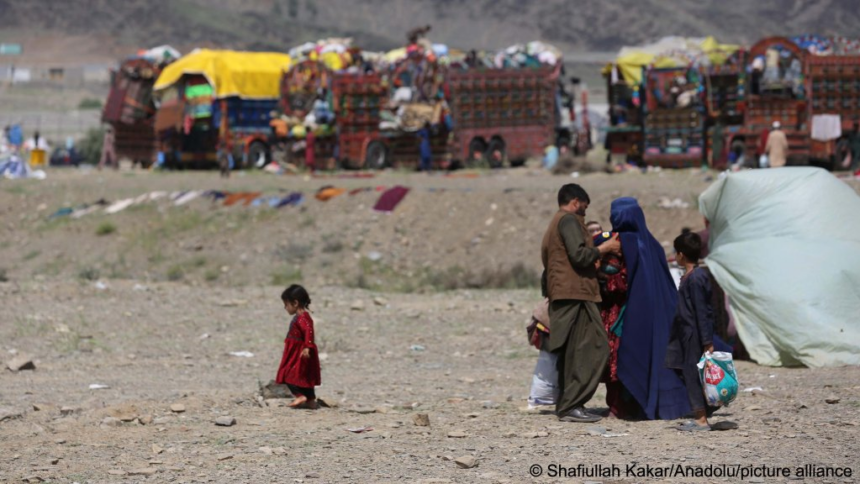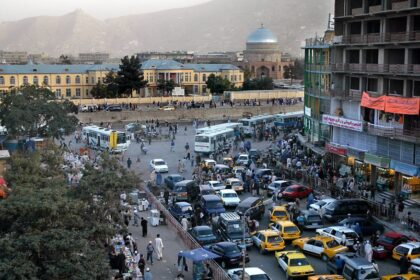RASC News Agency: In a sweeping and controversial crackdown, Pakistani authorities have intensified the forced expulsion of Afghanistani nationals including individuals born and raised on Pakistani soil effectively rendering thousands of long-term residents stateless and uprooted. Among the deportees are second- and even third-generation Afghanistani migrants who have spent their entire lives in Pakistan, many of whom have never set foot in Afghanistan. Now, they find themselves thrust into a nation ruled by a regime they do not know, facing a future marked by uncertainty, insecurity, and a lack of basic services. “I was born in Karachi. I don’t even speak Dari or Pashto fluently,” said one deportee. “Now I’ve been dumped into a country I’ve never seen, under a regime I don’t trust.”
Numerous returnees report systemic harassment and extortion by Pakistani police, with many claiming they were subjected to repeated home raids and forced to pay bribes to avoid arrest or deportation. “They came into our house three times in one week,” said another returnee. “Even showing valid documents didn’t stop them.” These testimonies reveal a troubling pattern of abuse and impunity. Despite the severity of the humanitarian crisis, the Taliban have issued vague and unsubstantiated claims about their preparedness to address the influx. The so-called “Commission for Refugee Affairs” under Taliban control announced that nearly 3,000 individuals crossed into Afghanistan from Pakistan on Thursday alone. However, there is little evidence of a concrete reintegration plan or capacity to provide housing, employment, or basic security for the returnees many of whom have no familial or tribal ties in Afghanistan.
The International Organization for Migration (IOM) has confirmed that in just over two weeks, more than 60,000 Afghanistani citizens have been deported or pressured into returning. A large portion of these individuals were in possession of the Afghanistani Citizen Card (ACC), a document issued by the Pakistani government to regularize their stay now rendered meaningless under Islamabad’s abrupt reversal. Meanwhile, reports continue to surface of aggressive door-to-door searches and mass detentions of Afghanistani migrants in major Pakistani cities, including Islamabad, Rawalpindi, and Karachi. Eyewitnesses describe scenes of police forcibly removing entire families, ignoring pleas from children and elders alike.
In the face of this humanitarian disaster, the Taliban have failed to present a credible or compassionate response. Their rhetoric of “preparedness” rings hollow against the backdrop of widespread economic collapse, unemployment, and insecurity across Taliban-controlled territories. Returnees find themselves abandoned at border checkpoints or in makeshift camps with no access to food, healthcare, or legal support. What’s more, the Taliban’s obsession with consolidating power through ideological enforcement and repression has left little room for governance, let alone refugee reintegration. Instead of mobilizing state institutions to respond to this growing crisis, the group has prioritized public displays of religious conformity and the silencing of dissenting voices.
Human rights organizations have condemned both Pakistan’s policy of mass expulsions and the Taliban’s neglect. The deportation of Afghanistani-born individuals many of whom identify more with Pakistan than with Afghanistan raises serious concerns under international law, including potential violations of the principles of non-refoulement and the rights of stateless persons. As Pakistan tightens its grip on Afghanistani communities and the Taliban remain fixated on internal control rather than national responsibility, a generation of displaced people is being pushed into a legal and humanitarian void abandoned by both the state that expelled them and the regime that pretends to welcome them.






